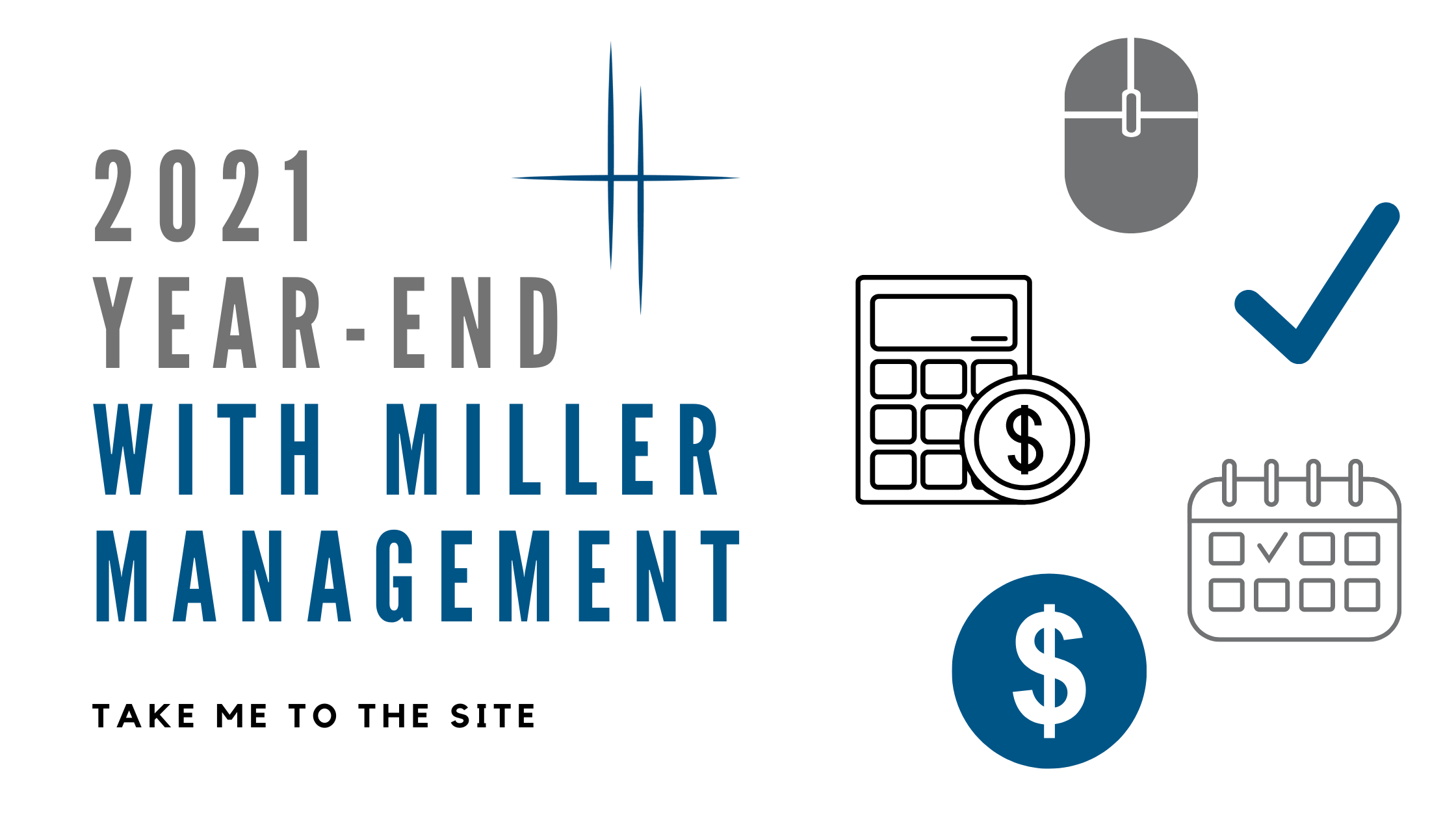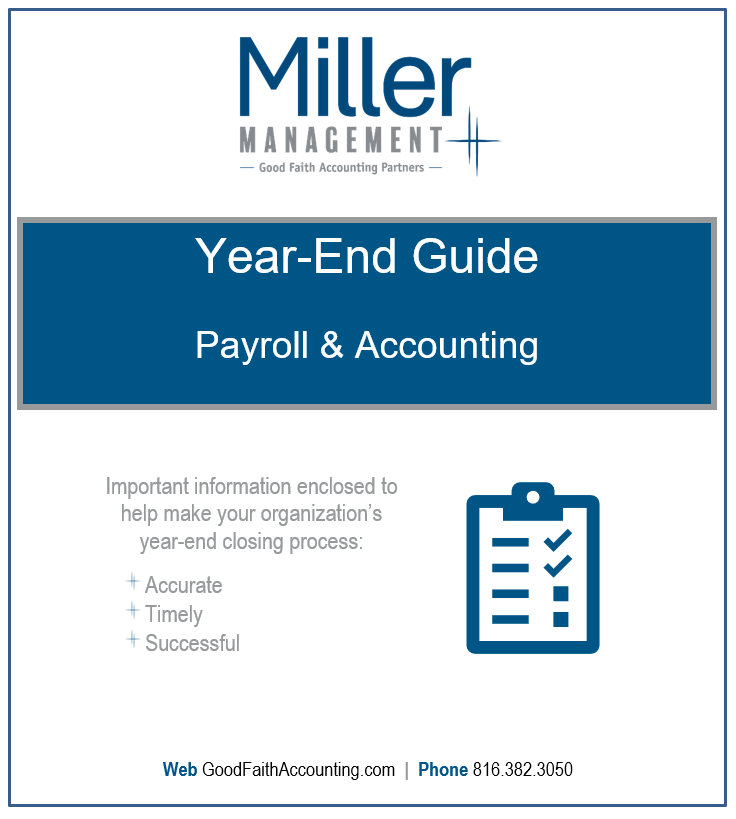December 01, 2021
Year-End Checklist

Year-End can bring some extra challenges to closing out your financial month. Extra due dates and correct IRS reporting are usually the items that can trip people up. As a handy resource, we are providing a our top five items to have on your year-end checklist and the top four due dates to remember.

If you are a Miller Management client, we provide you a detailed list of due dates and send you organization specific information to check. The following information should be used for those of you who do not have a service providing you with that level of detail.
Top 5 Items for your Year-End Checklist:
This list is where you will find the most important things to do this year-end season.
- Verify employee information for correction submission of W-2s.
- Review the information for anyone receiving a 1099 from your organization. Contractors that were paid $600 or more in the current calendar year.
- Verify contribution records to send to donors. This includes names and addresses and also amounts.
- Finalized the budget for the upcoming year.
- Provide balanced financial statements for the entire fiscal year to your governing authority or board members.
Top 4 Due Dates to Remember:
Really, it’s just one date. But there is so much to do before that date, we encourage you to pace yourself and not wait until the last minute.
- Send W-2s to employees by January 31st.
- Mail 1099s to your independent contractors by January 31st.
- Deliver contribution statements to donors by January 31st.
- Send all tax information to the IRS before January 31st.
Items you forgot in your Year-End Checklist:
That is a very high-level look at due dates and items to produce. Next, we will provide a few details for correct recording. Also known as the items you may have forgotten to include in your year-end checklist.
Payroll
Let’s start with Payroll, per IRS mandates, the pay date on checks determines what year money is recorded, not the date of the work done. This applies to both employees and independent contractors. Their year-end statements should reflect the correct amount for the year, not necessarily the work that was done that year.
Sometimes organizations like to provide a love offering or a special Christmas bonus. Remember: those items will need to be recorded on the appropriate tax documents – either a 1099 (contractors) or W-2 (employees).
Contributions
At the end of the year, your organization should make two separate bank deposits. One for any money that was received or postmarked by December 31st. And the second deposit should be any money that was received or postmarked in January.
This can get a bit tricky, and we’ve written a little more on the topic on our End of Year Giving post.
Financials
Finally, next year’s budget should be incorporated into your monthly financials, but you should also consider your chart of accounts in this step as well. If there should be additional accounts (not bank accounts, just buckets within one account) now is a good time to add those. And now is also a good time to see if any of those buckets should be shut down.
Resource: Church Law & Tax provides a free one-hour webinar on the topic of Church Financial Management in Challenging Times that may be interesting while you are setting up your budget. Note: this was produced during the COVID-19 outbreak and is specific to budgeting around those areas.
Resource: MM wrote another lengthy post all about reading financials. There is a section regarding Annual Reports and Meetings we encourage you to peruse for more information.
Happiest Season of All!
Wishing you a stress-free happiest season of all … Year-End! And if this season gets you thinking about how to NOT have to do all these things for next year, consider looking into how Miller Management can help. We are here to be your Good Faith Accounting Partners.
Stay Connected